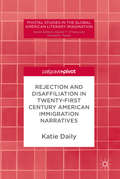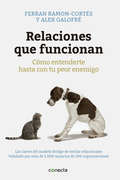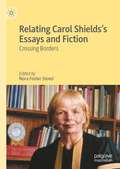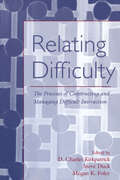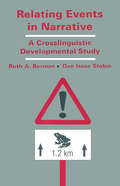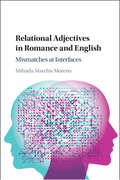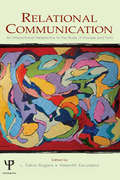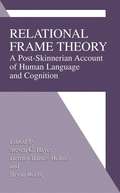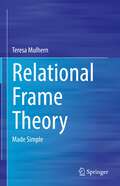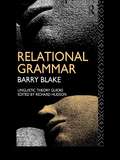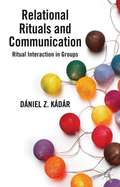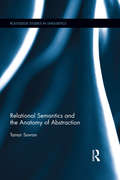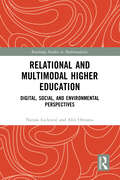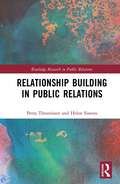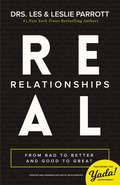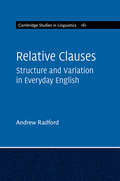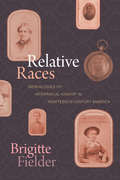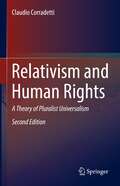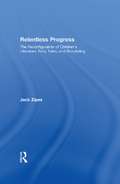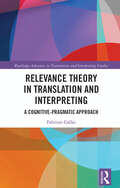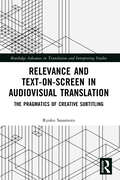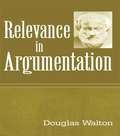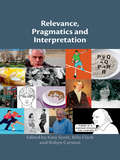- Table View
- List View
Rejection and Disaffiliation in Twenty-First Century American Immigration Narratives (Pivotal Studies in the Global American Literary Imagination)
by Katie DailyRejection and Disaffiliation in Twenty-First Century American Immigration Narratives examines changing attitudes about national sovereignty and affiliation. Katie Daily delinks twenty-first century American immigration narratives from 9/11, examining genre alterations within a scope of literary analysis that is wider than what “post-9/11” allows. What emerges is an understanding of the speed at which the rhetoric and aims of many twenty-first century immigration narratives significantly depart from the traditions established post-1900. Daily investigates a recent trend in which novelists and filmmakers question what it means to be an immigrant in contemporary America and explores how these “disaffiliation” narratives challenge some of the most fundamental traditions in American literature and society.
Relaciones que funcionan: Cómo entenderte hasta con tu peor enemigo
by Alex Galofré Ferran Ramón-CortesUna herramienta para conocer mejor a los demás, ajustar nuestra relación con ellos y, de esta forma, evitar malentendidos y conflictos. Las personas tenemos estilos diferentes, y esto hace que recibamos la comunicación de forma diferente. Adaptar nuestra comunicación al estilo de la persona a la que nos dirigimos hace que nos podamos entender mejor. Para conseguir una relación positiva entre distintos estilos, necesitamos tender puentes de comprensión y aceptación. Necesitamos entender qué necesita cada estilo y qué debemos evitar. Solo así podremos vencer malentendidos y conflictos. Relaciones que funcionan parte de la idea de que cada persona posee un estilo de relación con los otros diferente, y que esos estilos se pueden agrupar en cuatro grandes tipologías. A partir de estas tipologías, los autores proponen una metodología para conocer a nuestros interlocutores y adaptar nuestra comunicación a ellos, de forma que sea más persuasiva. El libro también introduce una reflexión sobre cómo nos podemos relacionar con personas que son aparentemente antagónicas a nosotros, dando explicación a incomprensiones y conflictos a los que a veces nos enfrentamos sin comprender cómo se han originado, y menos aún, cómo resolverlos.
Relating Carol Shields’s Essays and Fiction: Crossing Borders
by Nora Foster StovelThis collection of essays explores celebrated Canadian author Carol Shields’s experimentation with the essay genre in relation to her fiction. Shields’s essays clarify her iconoclastic approach to rules of narrative and illuminate her revisionist policies, elucidating the development of her fiction, both novels and stories, as her writing gradually becomes more explicitly feminist, as well as more daringly postmodernist. The dozen essays by the eminent Canadianists included in this edition throw fresh light on Shields’s writing, inviting us to read it with new eyes by revealing how her essays reflect and refract the brilliance of her fiction. These essays read Shields’s fiction through the lens of her essays, including those contained in the recent Giardini edition, wherein the author explains the creative methodologies involved in her fiction and also offers specific advice to writers of fiction.
Relating Difficulty: The Processes of Constructing and Managing Difficult Interaction (LEA's Series on Personal Relationships)
by Steve Duck D. Charles Kirkpatrick Megan K. FoleyRelating Difficulty offers insight into the nature of difficulty in relationships across a broad range of human experience. Whether dealing with in-laws or ex-spouses, long-distance relationships or power and status in the workplace, difficulty is an all too common feature of daily life. Relating Difficulty brings the academic understanding of relational processes to the everyday problems people face at home and at work. These essays represent a groundbreaking collection of the multidisciplinary conceptual and empirical work that currently exists on the topic. Along with issues such as chronic illness and money problems, contributors investigate contexts of relational difficulty ranging from everyday gossip, the workplace and shyness to more dangerous sexual “hookups” and partner abuse. Drawing on evidence presented in the volume, editors D. Charles Kirkpatrick, Steve Duck, and Megan K. Foley explain how relational problems do not emerge solely from individuals or even from the relationship itself. Instead, they arise from triangles of connection and negotiation between relational partners, contexts, and outsiders. The volume challenges the simple notion that relating difficulty is just about problems with "difficult people" and offers some genuinely novel insights into a familiar everyday experience. This exceptional volume is essential reading for practitioners, researchers and students of relationships across a wide range of disciplines as well as anyone wanting greater understanding of relational functioning in everyday life and at work.
Relating Events in Narrative: A Crosslinguistic Developmental Study
by Dan Isaac Slobin Ruth A. BermanThis volume represents the culmination of an extensive research project that studied the development of linguistic form/function relations in narrative discourse. It is unique in the extent of data which it analyzes--more than 250 texts from children and adults speaking five different languages--and in its crosslinguistic, typological focus. It is the first book to address the issue of how the structural properties and rhetorical preferences of different native languages--English, German, Spanish, Hebrew, and Turkish--impinge on narrative abilities across different phases of development. The work of Berman and Slobin and their colleagues provides insight into the interplay between shared, possibly universal, patterns in the developing ability to create well-constructed, globally organized narratives among preschoolers from three years of age compared with school children and adults, contrasted against the impact of typological and rhetorical features of particular native languages on how speakers express these abilities in the process of "relating events in narrative." This volume also makes a special contribution to the field of language acquisition and development by providing detailed analyses of how linguistic forms come to be used in the service of narrative functions, such as the expression of temporal relations of simultaneity and retrospection, perspective-taking on events, and textual connectivity. To present this information, the authors prepared in-depth analyses of a wide range of linguistic systems, including tense-aspect marking, passive and middle voice, locative and directional predications, connectivity markers, null subjects, and relative clause constructions. In contrast to most work in the field of language acquisition, this book focuses on developments in the use of these early forms in extended discourse--beyond the initial phase of early language development. The book offers a pioneering approach to the interactions between form and function in the development and use of language, from a typological linguistic perspective. The study is based on a large crosslinguistic corpus of narratives, elicited from preschool, school-age, and adult subjects. All of the narratives were elicited by the same picture storybook,Frog, Where Are You?, by Mercer Mayer. (An appendix lists related studies using the same storybook in 50 languages.) The findings illuminate both universal and language-specific patterns of development, providing new insights into questions of language and thought.
Relational Adjectives in Romance and English: Mismatches at Interfaces
by Mihaela Marchis MorenoIn both Romance and English literature, relational adjectives have received special attention due to their apparently idiosyncratic behaviour, as both nouns and adjectives at the same time. Stepping away from the usual analyses that concentrates generally on their noun-like properties, this pioneer work explains their peculiar behaviour that has so far represented a challenge for current morphological theories.<P><P> Mihaela Marchis Moreno takes an empirical approach to their distribution, and the syntactic and semantic conditions that govern their use. Drawing upon key findings from previous literature she proposes a new model of how relational adjectives work both cross-linguistically, and across the various interfaces of language.<P> A pioneering work that provides explanation for the peculiar behaviour of relational adjectives as both noun and adjective,<P> Provides a wide range of data on the formation of relational adjectives and their behaviour from both an empirical and theoretical perspective and from a variety of different languages.<P> Suggests new techniques for analyses that can be used for further investigation of similar topics.
Relational Communication: An Interactional Perspective To the Study of Process and Form (LEA's Series on Personal Relationships)
by L. Edna Rogers Valentin EscuderoRelational Communication: An Interactional Perspective to the Study of Process and Form brings together in one volume a full treatment of the relational communication perspective on the study of relationships. This perspective takes to heart the formative nature of communication by focusing on the codefined patterns of interaction by which members jointly create their relationship. This book provides a strong theoretical foundation to the research approach and also offers a step-by-step guide for carrying out the research procedures. It is a complete guide for the beginner or experienced researcher. The contributed chapters are written by researchers from psychology, clinical psychology, marital and family therapy, as well as marital, health, and organizational communication. Several of the studies on marital interaction are based on both American and Spanish research samples, offering a cross-disciplinary and cross-cultural application of the perspective. Part I opens with a discussion of the theoretical foundation and epistemological grounding of the perspective and then moves on to the observational research methods involved in applying the perspective's interactional approach. Part II presents a set of programmatic research exemplars that describe the application of the relational communication approach in different relational contexts, from marital to organizational settings. Part III offers a reflective overview of the research perspective. This book is appropriate for advanced undergraduate and graduate students, scholars, and researchers in communication. It will also be of interest to professionals, students, teachers and researchers in the fields of marital relations and family study, social and clinical psychology, family therapy, social work, and marital and family counseling programs.
Relational Frame Theory: A Post-Skinnerian Account of Human Language and Cognition
by Dermot Barnes-Holmes Steven C. Hayes Bryan RocheRFT is a post-Skinnerian account of human language and cognition. It provides the theoretical basis of the contextualism in behavioral and cognitive approaches to human learning and psychological and emotional growth.
Relational Frame Theory: Made Simple
by Teresa MulhernRelational Frame Theory: What is it? Why is it important? How can I use it? This book dispels the confusion surrounding Relational Frame Theory and provides an easy-to-understand briefing of Relational Frame Theory and its’ components, with examples to enhance and ease understanding. Recent research has indicated that Relational Frame Theory may form the cornerstone of language and intelligence and this textbook integrates this information into an easily digestible format, considering the importance of each relational frame from coordination to analogy. Relational Frame Theory provides a potentially useful framework for teaching language and academic skills and the current textbook provides some examples of how to do this and offers some considerations for future research in this area. This book makes Relational Frame Theory easy to understand and, unlike previous books, assumes no prior knowledge of the theory amongst readers and clarifies some of the jargon used within this body of work. This book provides the most up-to-date outline of previous work within Relational Frame Theory and gives an overview of how this theory could be applied within psychology. To date, no previous book has attempted to integrate research, application and an easy-to-understand overview of the theory together – this book aims to integrate all of these aspects into one easily comprehensible guide. The current textbook is aimed towards graduate students and practitioners of applied behavior analysis. Given the proposed changes to the Behavior Analysis Certification Board which will focus more on Relational Frame Theory than in the past, a book of this nature will be helpful for those pursuing certification and may also be helpful for use within the applied field.
Relational Grammar (Croom Helm Linguistic Theory Guides Ser.)
by Barry BlakeFirst published in 2003. Routledge is an imprint of Taylor & Francis, an informa company.
Relational Rituals and Communication: Ritual Interaction in Groups
by Dániel Z. KádárThis book provides a ground-breaking, interaction-based framework of rituals, drawing on multiple research disciplines. It examines ritual as a relational action constructed in interaction through pre-existing patterns and captures the features of ritual phenomena by analysing interactants' behaviour in culturally and socially diverse contexts.
Relational Semantics and the Anatomy of Abstraction: Relational Semantics And The Anatomy Of Abstraction (Routledge Studies in Linguistics)
by Tamar SovranThis book presents a study of meaning relations, linking the philosophical tradition of conceptual analysis with recent theories and methodologies in cognitive semantics. Its main concern is the extent to which analyzing meaning relations between cognate words reveal the infrastructure of the actual and mental lexicon, assuming that language mirrors thought. Sovran aims to elucidate their infrastructure and the metaphorical and perceptual models that constitute abstract concepts, dealing finally with the role of abstraction in poetic metaphors. Overall, this volume addresses major contemporary issues in the philosophy of language and theoretical semantics.
Relational and Multimodal Higher Education: Digital, Social and Environmental Perspectives (Routledge Studies in Multimodality)
by Alin Olteanu Nataša LackovićThis book proposes a relational turn in higher education by conceptualizing knowledge and pedagogy as relational and multimodal, analyzed through three dimensions of relationality: social, technological, and environmental. The volume draws on interdisciplinary approaches that make a case for integrating these interconnected and distinct dimensions in higher education theory and practice. Its novelty lies in combining such a variety of perspectives with Peircean semiotics to explore what it means to learn and live relationally. It emphasizes the importance of critical reflection, rooted in an environmental understanding of knowledge and digital media. This approach integrates materiality, place, and space in higher education, positioning caring, critically reflective and imaginative interactions and interpretations as central for knowledge growth. The volume features practical case studies of relational pedagogy through dialogues with diverse higher education practitioners, which embrace expression and creation through more than one dominant modality of communication and being. The book envisions students and educators as relational agents, with relational awareness and responsibility, aware of their multimodal identities. It highlights how a relational multimodal paradigm can serve as a way forward for universities to address global challenges concerning social, (post)digital, and environmental futures. This innovative book will be of interest to scholars, students, teachers, and policymakers in higher education, semiotics and multimodality, as well as postdigital, sociomaterial and futures studies.
Relationship Building in Public Relations (Routledge Research in Public Relations)
by Helen Sissons Petra TheunissenThis book aims to provide an interdisciplinary approach to highlight the importance of relationships in public relations, delving not only into the organization-public relationships but also into interpersonal relationships within the industry in order to offer new, empirical insights into the impact and formation of such relationships. Theunissen and Sissons theorize that public relations cannot exist without interpersonal relationships and the ability to create and maintain such relationships. Taking a critical stance, the book will move beyond mere rhetoric and conjecture by providing solid evidence-based research results to inform their theories about the impact of relationships and dialogue on public relations thinking. Rather than following contemporary thinking, it aims to embrace current changes, look ahead and prepare a new generation for the challenges of 21st century public relations practice.
Relationships: An Open and Honest Guide to Making Bad Relationships Better and Good Relationships Great
by Les Parrott Leslie ParrottThe following quotation is taken from the back cover of the paper-back edition of this book: "Heading below the surface to the depths of human interactions, relationship experts Les and Leslie Parrott show how to make bad relationships better and good relationships great. Here are the tools you need to handle tough times and to really succeed at forging strong, rewarding relationships with friends, with the opposite sex, with family, and with God. This cutting-edge book will help you understand: Who you are and what you bring to your relationship; How your family of origin shapes the way you relate to others; How to bridge the gender gap and learn the language of the opposite sex; [It will give you] tips for building friendships that last; [It will provide you with] secrets to finding the love you long for and ... [for] handling sexual issues; [It will show you] how to handle failed friendships and breakups without falling apart; [and show you] how to relate to God without feeling phony." Even though the writers are Christian mental health professionals, they are able to relate to both Christian and non-Christian readers. Christians who want an integrated Christian-Psychological approach will find this book helpful. However, because this book is primarily secular psychology and is not a Christian Pastoral volume, readers who are more secular or who are not Christians will be able to incorporate many of the authors comments, strategies, and psychological findings into their own lives.
Relative Chronology in Early Greek Epic Poetry
by Øivind Andersen Dag T. T. HaugThis book sets out to disentangle the complex chronology of early Greek epic poetry, which includes Homer, Hesiod, hymns and catalogues. The preserved corpus of these texts is characterised by a rather uniform language and many recurring themes, thus making the establishment of chronological priorities a difficult task. The editors have brought together scholars working on these texts from both a linguistic and a literary perspective to address the problem. Some contributions offer statistical analysis of the linguistic material or linguistic analysis of subgenres within epic, others use a neoanalytical approach to the history of epic themes or otherwise seek to track the development and interrelationship of epic contents. All the contributors focus on the implications of their study for the dating of early epic poems relative to each other. Thus the book offers an overview of the current state of discussion.
Relative Clauses: Structure and Variation in Everyday English (Cambridge Studies in Linguistics #161)
by Andrew RadfordUsing novel examples from live, unscripted radio/TV broadcasts and the internet, this path-breaking book will force us to reconsider the nature of everyday English and its complex interplay of syntactic, pragmatic, sociolinguistic and psycholinguistic factors. Uncovering unusual types of non-standard relative clauses, Andrew Radford develops theoretically sophisticated analyses in an area that has traditionally hardly been touched on: that of nonstandard (yet not clearly dialectal) variation in English. Making sense of a huge amount of data, the book demonstrates that some types of non-standard relative clauses have a complex syntactic structure of their own in which the relation between the relative clause and its antecedent is either syntactically encoded or pragmatic in nature, while others come about as a result of hypercorrection, and yet others arise from processing errors.
Relative Races: Genealogies of Interracial Kinship in Nineteenth-Century America
by Brigitte FielderIn Relative Races, Brigitte Fielder presents an alternative theory of how race is ascribed. Contrary to notions of genealogies by which race is transmitted from parents to children, the examples Fielder discusses from nineteenth-century literature, history, and popular culture show how race can follow other directions: Desdemona becomes less than fully white when she is smudged with Othello's blackface, a white woman becomes Native American when she is adopted by a Seneca family, and a mixed-race baby casts doubt on the whiteness of his mother. Fielder shows that the genealogies of race are especially visible in the racialization of white women, whose whiteness often depends on their ability to reproduce white family and white supremacy. Using black feminist and queer theories, Fielder presents readings of personal narratives, novels, plays, stories, poems, and images to illustrate how interracial kinship follows non-heteronormative, non-biological, and non-patrilineal models of inheritance in nineteenth-century literary culture.
Relativism and Human Rights: A Theory of Pluralist Universalism
by Claudio CorradettiThis is an innovative contribution to the philosophy of human rights. Considering both legal and philosophical scholarship, the views here bear an importance on the legitimacy of international politics and international law. As a result of more than 10 years of research, this revised edition engages with current debates through the help of new sections. Pluralistic universalism considers that, while formal filtering criteria constitute unavoidable requirements for the production of potentially valid arguments, the exemplarity of judgmental activity, in its turn, provides a pluralistic and retrospective reinterpretation for the fixity of such criteria. While speech formal standards grounds the thinnest possible presuppositions we can make as humans, the discursive exemplarity of judgments defends a notion of validity which is both contextually dependent and "subjectively universal". According to this approach, human rights principles are embedded within our linguistic argumentative practice. It is precisely from the intersubjective and dialogical relation among speakers that we come to reflect upon those same conditions of validity of our arguments. Once translated into national and regional constitutional norms, the discursive validity of exemplar judgments postulates the philosophical necessity for an ideal of legal-constitutional pluralism, challenging all those attempts trying to frustrate both horizontal (state to state) and vertical (supra-national-state-social) on-going debates on human rights.On the first edition of this book: “Claudio Corradetti’s book is a thoughtful attempt to find an adequate theoretical foundation for human rights. Its approach is interdisciplinary in nature, drawing on issues in analytical philosophy as well as contemporary political theorists, and the result is a densely argued text aimed at scholars … .” (Andrew Lambert, Metapsychology Online Reviews, Vol. 14 (3), January, 2010)
Relentless Progress: The Reconfiguration of Children's Literature, Fairy Tales, and Storytelling
by Jack ZipesCan fairy tales subvert consumerism? Can fantasy and children's literature counter the homogenizing influence of globalization? Can storytellers retain their authenticity in the age of consumerism? These are some of the critical questions raised by Jack Zipes, the celebrated scholar of fairy tales and children's literature. In this book, Zipes argues that, despite a dangerous reconfiguration of children as consumers in the civilizing process, children's literature, fairy tales, and storytelling possess a uniquely powerful (even fantastic)capacity to resist the "relentless progress" of negative trends in culture. He also argues that these tales and stories may lose their power if they are too diluted by commercialism and merchandising. Stories have been used for centuries as a way to teach children (and adults) how to see the world, as well as their place within it. In Relentless Progress, Zipes looks at the surprising ways that stories have influenced people within contemporary culture and vice versa. Among the many topics explored here are the dumbing down of books for children, the marketing of childhood, the changing shape of feminist fairy tales, and why American and British children aren’t exposed to more non-western fairy tales. From picture books to graphic novels, from children’s films to video games, from Grimm’s fairy tales to the multimedia Harry Potter phenomenon, Zipes demonstrates that while children’s stories have changed greatly in recent years, much about these stories have remained the same—despite their contemporary, high-tech repackaging. Relentless Progress offers remarkable insight into why classic folklore and fairy tales should remain an important part of the lives of children in today’s digital culture.
Relevance Theory
by Billy ClarkOver the past twenty years, relevance theory has become a key area of study within semantics and pragmatics. In this comprehensive new textbook, Billy Clark introduces the key elements of the theory and how they interconnect. The book is divided into two parts - the first providing an overview of the essential machinery of the theory, and the second exploring how the original theory has been extended, applied and critically discussed. Clark offers a systematic framework for understanding the theory from the basics up, building a complete picture and providing the basis for advanced research across a range of topics. With this book, students will understand the fundamentals of relevance theory, its origins in the work of Grice, the relationship it has to other approaches, and its place within recent developments and debates.
Relevance Theory in Translation and Interpreting: A Cognitive-Pragmatic Approach (Routledge Advances in Translation and Interpreting Studies)
by Fabrizio GallaiThis book illustrates the potential of Relevance Theory (RT) in offering a cognitive-pragmatic, cause-effect account of translation and interpreting (T&I), one which more closely engages T&I activity with the mental processes of speakers, listeners, writers, and readers during communicative acts. The volume provides an overview of the cognitive approach to communication taken by RT, with a particular focus on the distinction between explicit and implicit content and the relationship between thoughts and utterances. The book begins by outlining key concepts and theory in RT pragmatics and charting the development of their disciplinary relationship with work from T&I studies. Chapters draw on practical examples from a wide range of T&I contexts, including news media, scientific materials, literary translation, audiovisual translation, conference interpreting, and legal interpreting. The book also explores the myriad applications of RT pragmatics-inspired work and future implications for translation and interpreting research. This volume will be of interest to scholars in T&I studies and pragmatics.
Relevance and Text-on-Screen in Audiovisual Translation: The Pragmatics of Creative Subtitling (ISSN)
by Ryoko SasamotoThis book examines audiovisual translation (AVT) practices that fall outside conventional AVT norms, drawing on work from relevance theory to highlight alternative perspectives and make the case for a multidisciplinary approach to AVT.The volume focuses on creative subtitling – otherwise known as 'text-on-screen' – through the lens of relevance theory, a cognitively grounded theory of communication. Sasamoto explores the ways in which a relevance theoretic approach can provide an analytical framework for a better understanding of the interaction between 'text-on-screen' and viewers' interpretation processes and, in turn, how media producers, professional or otherwise, use 'text-on-screen' to engage viewers in innovative ways. The volume looks at such forms as telop, creative text use on screen, and forms of user-generated text-on-screen.The book introduces a new dimension to work on cognative pragmatics and the wider applications of relevance theory in multimodal communication and AVT, making it of interest to scholars in these disciplines.
Relevance in Argumentation (Pragmatics And Beyond Ser. #Iii:8)
by Douglas WaltonIn Relevance in Argumentation, author Douglas Walton presents a new method for critically evaluating arguments for relevance. This method enables a critic to judge whether a move can be said to be relevant or irrelevant, and is based on case studies of argumentation in which an argument, or part of an argument, has been criticized as irrelevant. Walton's method is based on a new theory of relevance that incorporates techniques of argumentation theory, logic, and artificial intelligence. The work uses a case-study approach with numerous examples of controversial arguments, strategies of attack in argumentation, and fallacies. Walton reviews ordinary cases of irrelevance in argumentation, and uses them as a basis to advance and develop his new theory of irrelevance and relevance. The volume also presents a clear account of the technical problems in the previous attempts to define relevance, including an analysis of formal systems of relevance logic and an explanation of the Grecian notion of conversational relevance. This volume is intended for graduate and advanced undergraduate courses in those fields using argumentation theory--especially philosophy, linguistics, cognitive science and communication studies, in addition to argumentation. The work also has practical use, as it applies theory directly to familiar examples of argumentation in daily and professional life. With a clear and comprehensive method for determining relevance and irrelevance, it can be convincingly applied to highly significant practical problems about relevance, including those in legal and political argumentation.
Relevance, Pragmatics and Interpretation
by Billy Clark Kate Scott Robyn CarstonBringing together work by leading scholars in relevance theory, this volume showcases cutting-edge research within the theory, and demonstrates its influence across a range of fields including linguistics, pragmatics, philosophy of language, literary studies, developmental psychology and cognitive science. Organised into broad thematic strands that represent the latest research and debates, the volume shows the depth of analysis now possible after nearly forty years of intensive work in developing and applying the principles of relevance theory. The breadth of influence of the framework is reflected in the chapters of the volume, in some cases moving beyond the traditional realms of semantics and pragmatics to include discourse analysis, language acquisition, media and education. The volume will be essential reading for researchers in these fields, as well as for those already working within relevance theory or with other pragmatic theories.
